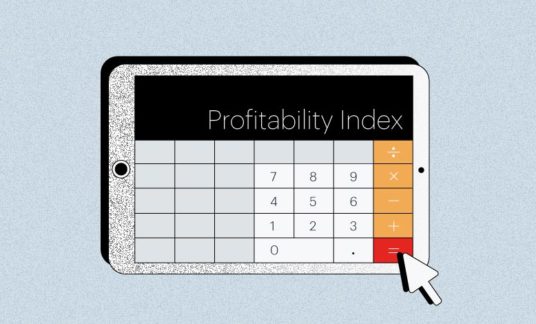Every business wants to make a profit. However, it isn’t that simple. It’s possible to be profitable but still not be able to pay your bills. With cash-flow problems (or low sales that lead to cash-flow problems) being a prime reason why businesses close, understanding cash flow and how it relates to your income is crucial.
In comparing cash flow versus net income or a cash flow statement versus an income statement, it might be easy to confuse the terms. But each has specific meanings in business. When examining the financial health of an entity, it’s important to understand the differences. For example, there’s a big difference between net income and cash flow.
So, let’s break down the difference between operating cash flow, free cash flow, working capital, and net income. Then we’ll show you how these measurements are calculated and how they impact small businesses.
What Is Operating Cash Flow?
Operating cash flow (OCF) is a measure of how much cash is generated by the business operations of a company. You also might hear it called cash flow from operating activities.
It’s an important benchmark to help determine a company’s financial health when it comes to core activities and the current state of affairs. Operating cash flow measures if a business generates enough cash to run its business without taking on additional debt.
On a cash-flow statement, OCF will be the first section, but won’t include cash from investments, financing or other noncore business activities.
What Is Free Cash Flow?
Free cash flow is a measure of how much cash a company generates from normal operations minus any cash spent for long-term fixed assets. These assets, called capital expenditures, include items such as property or equipment necessary to run the business.
In other words, free cash flow is the amount left over after paying for capital expenditure items. This is the money you have left over after you pay for everything.
Why is free cash flow important? Your free cash flow statement can show you what ability you have to grow your business, hire more employees, invest in additional assets, pay dividends to shareholders or other uses of free cash flow.

What Is Working Capital?
Working capital is the difference between your:
- Current business assets, such as cash, accounts receivable, inventory on hand and property
- Current liabilities, such as your accounts payable, payroll, rent, or utilities.
Working capital is a way to measure a company’s liquidity and short-term financial health.
When you have positive working capital, it demonstrates you can pay your short-term obligations. Anything leftover can be turned into profit or used to fund additional growth. If your working capital doesn’t cover your liabilities, you will need to find additional financing or struggle to pay creditors.
What Is Net Income?
Net income, or net earnings, is calculated by taking the amount of revenue generated and subtracting all expenses for procuring sales and running the business. The expenses include the cost of goods, administrative expenses, interest, tax, depreciation and any other cash expenditures.
Net income represents a company’s total earnings.
How Are Cash Flow and Net Income Calculated?
One of the easiest ways to see cash flow vs. net income is by looking at the formulas for how they are calculated.
Free Cash Flow Equation
Free Cash Flow = Operating Cash Flow – Capital Expenditures
Operating Cash Flow (OCF) Equation
Operating Cash Flow = Net Income + Noncash Expenses (such as depreciation) + Change in Working Capital
A positive free cash flow shows that you are bringing in more cash than you’re spending. A negative cash flow shows you are spending more than you are earning.
Working Capital Equation
Working Capital = Current Assets – Current Liabilities
Net Income Equation
Net Income = Revenue – Cost of Goods Sold – Expenses
Cash Flow vs. Net Income: Which Is More Important?
Many business owners focus on net income because it’s a measure of how much money the business made during the accounting period. Operating cash is generally considered a better indicator of the financial health of a business. That’s why cash flow measures in corporate analysis are always part of the equation.
Cash flow is difficult to manipulate under generally accepted accounting principles (GAAP). OCF also provides insight into whether a business can cover its operating expenses or leverage its capital for future investments. It also measures whether a business generates enough cash to meet any loan and debt payments. In short, a company with a strong operating cash flow has more money coming in than going out.
There’s no simple answer, however, to the question of whether cash flow or net income is more important when evaluating a business.
-
For Example
Because the calculations take into account different factors, it is possible to have a positive cash flow but negative net income. For example, a company might lose money if it doesn’t take in enough money to cover its expenses but still have positive cash flow because of an advance payment for an expense that hasn’t hit the books yet. This situation happens often in startups that have a positive cash flow and growing sales, but fail to make a profit.
This can work in other ways, too. You might earn a 20% margin on every product you sell but still not generate enough cash to pay your expenses. Because of accounting rules, you might show a profit of $50,000 one month, but only $10,000 of it shows up in your cash flow statement because the rest is pending in your accounts receivables.
The difference between net income and cash flow will tell you different things about your business, so the bottom line is they are both important to your business.

Cash Flow vs. Net Income: How Do They Impact Small Businesses?
Let’s look at a specific example. Say you are examining your operating free cash flow and profitability for the first quarter. In our example, you sell a customer $30,000 worth of goods on credit in January. You bill the customer with a due date of 60 days (March), but you need to pay your supplier $10,000 for the goods within 30 days (February).
Without adding in your additional operating expenses, this transaction shows a net income of $20,000. However, if you are using a cash basis of accounting, your cash flow in February will show minus $10,000 when you need to pay your supplier.
This is a simple example, but when you’re extending credit to multiple customers, sending out invoices with different amounts and payment terms, it can be difficult to keep track of everything. Even if you’re making a profit, you can easily fall short of cash some months if you aren’t carefully managing cash flow.
If you can’t generate enough cash flow to pay your bills, you have to get an influx of cash, such as a business loan or selling business assets.
Will Increased Sales Improve My Net Income?
As sales increase, so do the cost of goods and the expenses associated with sales. If you’re selling more bicycles, you need to buy more bicycles from your supplier. In addition, you’ll need to factor in the costs of shipping, assembly, along with any personnel, marketing and other expenses. If your margins aren’t good enough, an increase in sales alone won’t improve your net income.
Without cost controls and careful management of your finances, increased sales can lead to no improvement in net income.
Conversely, it is possible to sell less and still be more profitable. You can grow net income by tightening expenses or reducing your costs. For example, if you can maintain your current rate of sales with fewer employees, your profitability will improve. If you can reduce your cost of goods or streamline your processes, you may improve your net income.
There also are indirect costs that impact your net income, such as advertising and marketing. You can reduce these costs as well, but if they also reduce your sales or cash flow, it can lead to negative results all around.
‘If You Can’t Measure It, You Can’t Improve It’
Management consultant and author Peter Drucker said, “If you can’t measure it, you can’t improve it.”
Understanding free cash flow, operating cash flow, working capital and net income are important to measuring your business and improving it. Each measurement can give you an indication of the financial health of different areas of your business.
While they tell you different information, they all add up to a bigger picture representing your financial health.










